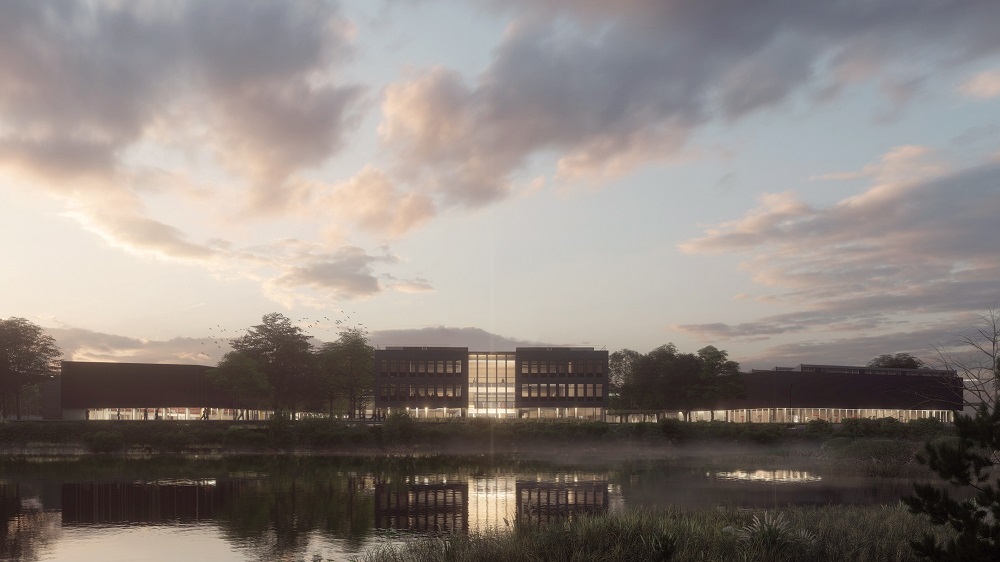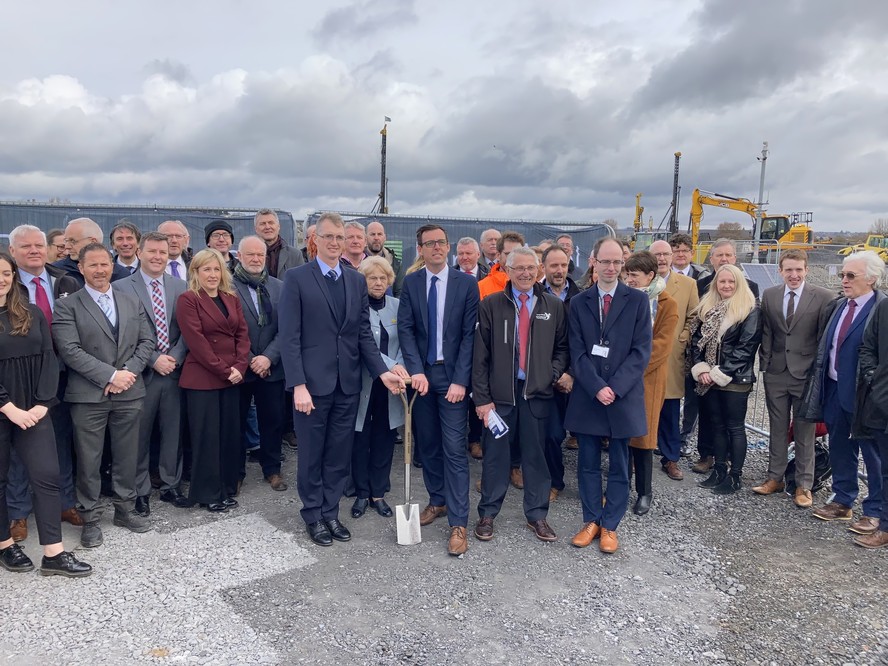Construction work gets underway on Carmarthenshire wellness village

Richard Youle, local democracy reporter
The first phase of a £200 million-plus healthcare, leisure and research project formally got under way today.
Pentre Awel, Llanelli, is being led by Carmarthenshire Council, whose leader Darren Price described it as a key regeneration project linking business, healthcare, academia, and the people of the town.
“We believe it can make a lasting impact on the community – a lasting impact on the social, economic and health profile of the area,” he said.
Pentre Awel, by Delta Lakes, will be delivered in four phases, or zones, and is aimed at helping people lead healthy and active lives.
Zone one, which is now under way, will cost around £93 million. It will comprise a new Llanelli Leisure Centre, clinical units such as physiotherapy and occupational therapy run by Hywel Dda University Health Board, plus education, clinical research and business innovation space. There will also be a cafe, and walking and cycling paths outside.
Zones two and three will include around 370 assisted living units and beds, with additional business space in zone three. People living there will have differing levels of care need and provide what Cllr Gareth John, cabinet member for regeneration, leisure, culture and tourism, described as “a test bed to promote independent living”. Zone four features a hotel and housing.
Cllr John and Cllr Price thanked all those involved for their efforts on zone one, which gained outline planning permission four years ago and detailed consent last summer. “From now on, everything is visible,” said Cllr John.
Wonderful
Attendees at the launch event included Secretary of State for Wales, David TC Davies, who told the Local Democracy Reporting Service that the project would create a “wonderful” new leisure centre and long-term job opportunities through the presence of companies specialising in medical technology. “It’s a very good day for Llanelli,” he said.
Partners in the project include Cardiff University, which will focus on business innovation, Swansea University, University of Wales Trinity Saint David, and Coleg Sir Gar, as well as the region’s health board.
Zone one is being built by a French family-owned firm , which is also building a new high-tech office development on The Kingsway, Swansea. Bouygues project director Peter Sharpe said Pentre Awel zone one would be completed in autumn 2024.
Mr Sharpe said the installation of 1,050 piles would finish in mid to late April, with the first “super structures” emerging around July. Preparation work, he said, had included the relocation of reptiles and slow worms to nearby sites.
Bouygues operations director Steve Davies pledged the “highest standard” of quality, environmental control and health and safety.
“We are proud to be building a project for the local community, a project with a heart and soul, a project that puts people first,” he said.
Solar power is providing electricity for the on-site office and CCTV system, and construction vehicles are using fuel derived from treated vegetable oil.

Pentre Awel is expected to cost £206 million, according to a Swansea Bay City Region report last month, with £108 million coming from the private sector, £58 million from the council and other public sector partners, plus a £40 million central government contribution via the City Deal for the wider area. The funding split underlines how important the private sector is for this and the other eight City Deal projects in Carmarthenshire, Swansea, Neath Port Talbot and Pembrokeshire.
It is hoped that Pentre Awel will create more than 1,800 jobs, training and apprentice opportunities over 15 years and generate £467 million for the local area when completed in full. A previous version of the project ran into difficulties, a collaboration agreement with a private sector partner was terminated by the council, and the scheme was re-branded.
Cardiff University will lead on the business and innovation element of Pentre Awel zone one. The university’s clinical innovation hub manager, Barbara Coles, of the school of medicine, said: “It’s about bringing in companies to engage with academics. One of the biggest shortfalls for companies when they want to innovate is clinical and academic expertise, and project management.”
Support our Nation today
For the price of a cup of coffee a month you can help us create an independent, not-for-profit, national news service for the people of Wales, by the people of Wales.




